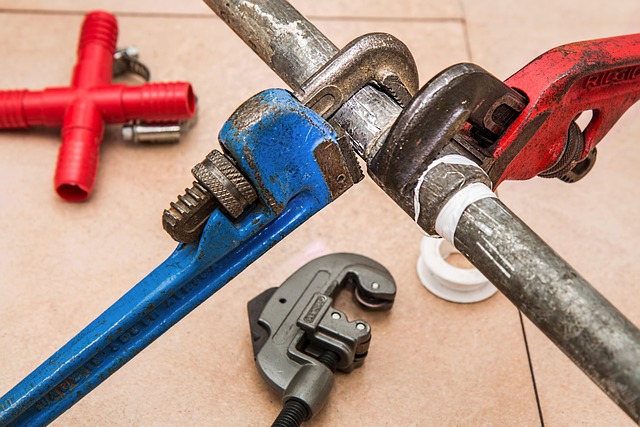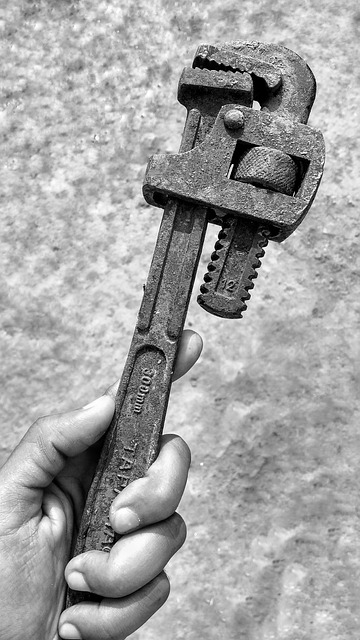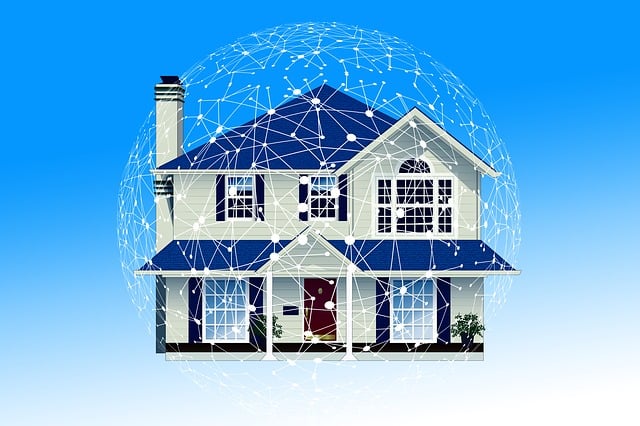Water softeners, driven by advanced plumbing technologies, are essential for managing hard water issues in homes and industries. These devices, using methods like ion exchange or reverse osmosis, reduce mineral buildup (calcium & magnesium) to soften water. Smart water softeners take this a step further with real-time monitoring, efficient softening processes, and remote control via home networks. They conserve energy, extend lifespans, minimize chemical usage, and offer cost-effective, eco-friendly solutions compared to traditional methods. Choosing the right smart water softener tailored to your property's needs ensures precise mineral control and optimal water quality without excess waste, making them attractive DIY options for efficient water softening. Regular maintenance is key to ensure top performance and longevity.
In today’s world, efficient mineral control is essential for both residential and commercial plumbing systems. This is where smart water softeners step in as revolutionary technologies, offering advanced solutions for optimal water quality. The article delves into the intricacies of these innovative devices, exploring their role in managing minerals and enhancing overall water purity. By understanding the evolution of plumbing technologies, from traditional to smart water softeners, readers will grasp how these systems navigate complex mineral control challenges, ensuring a sustainable and healthy future.
- Understanding Water Softeners and Their Role in Mineral Control
- The Evolution of Plumbing Technologies: Smart Water Softeners
- How Smart Water Softeners Work: Advanced Sensors and Controls
- Benefits of Implementing Smart Mineral Control Systems
- Selecting the Right Smart Water Softener for Your Home or Business
- Maintenance and Care: Ensuring Optimal Performance of Smart Water Softeners
Understanding Water Softeners and Their Role in Mineral Control

Water softeners have emerged as essential plumbing technologies for households and industries dealing with hard water issues. These devices play a pivotal role in mineral control by removing calcium and magnesium ions, primarily responsible for water hardness. Hard water can lead to various problems, including scaled pipes, reduced water pressure, and the need for more frequent appliance maintenance.
By employing advanced techniques like ion exchange or reverse osmosis, smart water softeners offer precise mineral control, ensuring that while harmful minerals are removed, beneficial ones like potassium and sodium remain intact. This tailored approach not only extends the lifespan of plumbing systems but also contributes to energy efficiency in water-using appliances, making them a valuable addition to modern homes and commercial settings.
The Evolution of Plumbing Technologies: Smart Water Softeners

The evolution of plumbing technologies has led to a significant shift in how we manage our water resources, particularly in areas with hard water issues. Traditional water softeners have long been used to control mineral buildup, but modern advancements have given rise to smart water softeners that offer enhanced efficiency and convenience. These innovative devices not only soften water but also monitor and optimize water quality in real-time, ensuring a more sustainable and environmentally friendly approach to plumbing.
Smart water softeners leverage advanced sensors and connectivity features to adapt to changing conditions. They can detect water hardness levels and adjust softening processes accordingly, minimizing the use of salt or chemicals. This not only saves energy and reduces environmental impact but also extends the lifespan of plumbing fixtures and appliances. With their ability to connect to home networks, these devices allow users to remotely monitor and control water softening settings, further enhancing convenience and ensuring optimal mineral control in every drop of water.
How Smart Water Softeners Work: Advanced Sensors and Controls

Smart water softeners leverage advanced plumbing technologies, integrating sophisticated sensors and control systems for precise mineral control. These devices continuously monitor water quality in real-time, detecting the presence and levels of minerals like calcium and magnesium. Armed with this data, the smart water softener adjusts its operation accordingly, softening the water only when necessary, thereby conserving energy and extending the lifespan of the softener.
The heart of these systems lies in their intelligent controls, which use algorithms to optimize water softening processes. This ensures that hard water is treated on-demand, as opposed to continuous treatment, reducing unnecessary chemical usage and minimizing environmental impact. By employing such innovative plumbing technologies, smart water softeners offer a more efficient, cost-effective, and eco-friendly alternative for managing mineral levels in household water supplies.
Benefits of Implementing Smart Mineral Control Systems

Implementing smart mineral control systems offers a host of benefits, revolutionizing traditional plumbing technologies. These advanced solutions monitor and adjust water composition in real-time, ensuring optimal mineral levels. This not only prolongs the lifespan of plumbing fixtures and appliances but also enhances their performance. By preventing scale buildup and corrosion, smart water softeners provide cost savings on maintenance and replacement costs.
Moreover, these systems contribute to energy efficiency by reducing the need for excessive heating and cooling processes that rely on mineral-free water. They also promote sustainable practices by minimizing water wastage associated with traditional softening methods. Smart mineral control systems represent a modern approach to home and commercial plumbing, combining convenience, cost savings, and environmental stewardship.
Selecting the Right Smart Water Softener for Your Home or Business

When selecting a smart water softener, consider your specific mineral control needs and the size of your property. Factors like water hardness levels and the number of users will determine the capacity required. Smart water softeners, incorporating advanced plumbing technologies, offer precise control over mineral removal, ensuring optimal water quality.
Modern models often come equipped with sensors that detect water conditions in real-time, allowing for automatic adjustments to soften water effectively without wastage. Look for features like energy efficiency ratings, as these devices can significantly reduce utility bills. Additionally, consider the ease of installation and maintenance, especially if you’re opting for a DIY solution, ensuring hassle-free integration into your existing plumbing system.
Maintenance and Care: Ensuring Optimal Performance of Smart Water Softeners

Smart water softeners, driven by innovative plumbing technologies, offer precise mineral control, enhancing both water quality and appliance performance. However, for optimal functionality, regular maintenance is paramount. A key aspect involves regularly monitoring salt or mineral levels, ensuring the softener’s “brain” receives accurate data for efficient operation. Additionally, periodic cleaning prevents buildup, which can reduce efficiency and even damage appliances.
Many modern models include self-cleaning mechanisms, but manual flushing or backwashing may still be required based on water usage and local mineral content. Furthermore, checking connections and seals for leaks, replacing filters as directed, and keeping the unit free from obstructions contribute to sustained peak performance, ensuring your smart water softener serves its purpose effectively over its lifespan.
